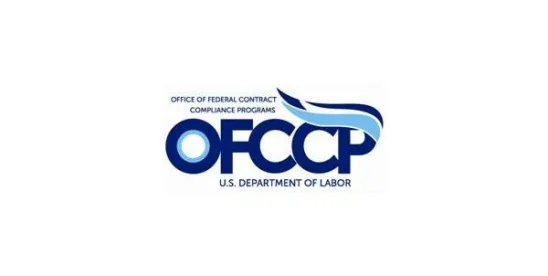As financial institutions consider their ever-growing list of compliance obligations, they would be remiss in not evaluating their employment-related obligations as a federal contractor. For starters, financial institutions may not recognize that they are a federal contractor under the implementing regulations of three affirmative action programs enforced by the Office of Federal Contract Compliance Programs (“OFCCP”), a civil rights agency within the United States Department of Labor. These programs include: Executive Order 12246, as amended; Section 503 of the Rehabilitation Act of 1973, as amended; (“Section 503”); and the Vietnam Era Veterans’ Readjustment Assistance Act of 1974, as amended (“VEVRAA”). The purpose of these programs is to ensure that those who do business with the federal government are engaging in affirmative action and not engaging in discriminatory hiring practices.
Financial institutions typically have agreements with the government that meet the definition of a government contract. Under the above laws, a government contract is defined to include any agreement between a “contracting agency and any person for the purchase, sale, or use of personal property or nonpersonal services.” The definition of nonpersonal services explicitly includes insurance agreements and fund depositories. Therefore, financial institutions covered by the Federal Deposit Insurance Corporation or National Credit Union Association have government contracts and are federal contractors.
To fall under OFCCP’s enforcement authority, the financial institution must meet the dollar amount threshold. More specifically, a financial institution is a covered federal contractor under Executive Order 11246 if it (1) is party to a federal contract or subcontract worth $10,000 or more or multiple contracts that combine to $10,000 in a 12-month period, (3) holds government bills of lading, or (3) serves as a depository of Federal funds or is an issuing and paying agent for U.S. savings bonds and notes in any amount. Financial institutions with federal contracts in excess of $15,000 will also be subject to Section 503, and those in excess of $150,000 are also subject to VEVRAA.
To enforce these equal employment programs, the OFCCP monitors the employment practices of covered federal contractors. The OFCCP accomplishes this by conducting periodic audits, and it also conducts investigations in response to complaints by jobseekers and employees. Specifically, the OFCCP monitors federal contractors to ensure they do not discriminate in employment based on race, color, religion, sex, sexual orientation, gender identity, national origin, disability, or status as a protected veteran. The OFCCP also enforces a pay transparency provision, which prohibits federal contractors from discharging or discriminating against employees or job applicants who discuss, disclose, or inquire about their pay or the pay of their coworkers.
If selected for an audit by the OFCCP, a federal contractor has 30 days to respond. The data required for such response, discussed more thoroughly here, is quite extensive and difficult to collect, review, analyze, and synthesize in the limited time provided. Failure to maintain compliance can lead to serious sanctions in which significant monetary penalties and civil penalties are enforce or, in egregious situations, contracts are terminated or suspended.
Financial institutions should work with in-house and/or outside counsel to evaluate and properly develop their OFCCP compliance strategy and structure to not only ensure compliance, but to reduce potential exposure in the event of an audit.





 />i
/>i

